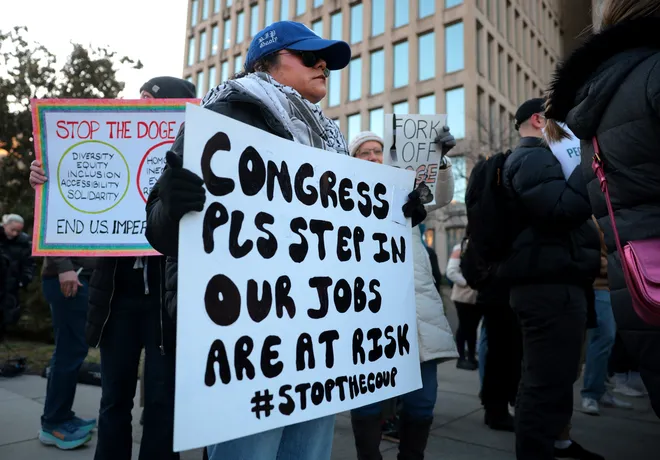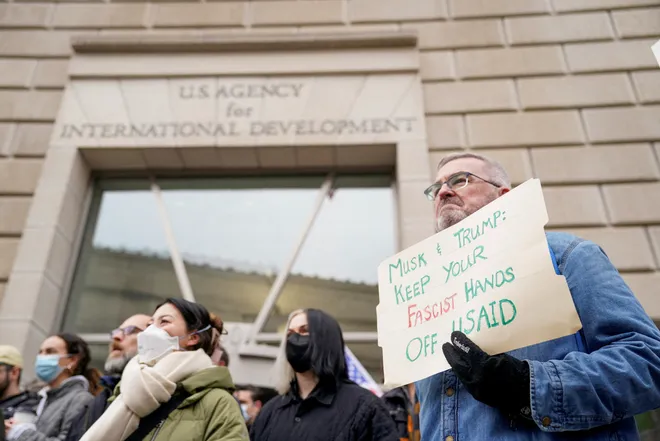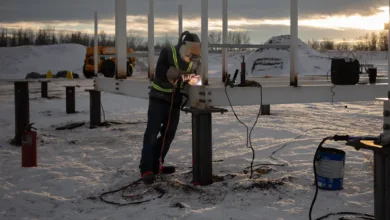Why Are Federal Employees Furious About Trump Buyout Fallout? 5 Key Reasons Explained

The Trump administration’s buyout offer to federal employees was intended to streamline government operations, but it has sparked widespread anger and frustration among workers. Many federal employees feel betrayed, claiming that the buyout fallout has “burned bridges” between them and the administration. In this article, we’ll explore 5 key reasons why federal employees are furious about the Trump buyout fallout and how it has impacted their trust in the government.
1. Broken Promises and Lack of Transparency
One of the primary reasons for the anger among federal employees is the perceived lack of transparency in the buyout process. Many workers claim they were promised job security and fair treatment, only to feel blindsided by the terms of the buyout.
For example, some employees were offered buyouts with the understanding that their positions would be restructured, not eliminated. However, they later discovered that their roles were being outsourced or automated, leaving them without viable alternatives. This breach of trust has fueled resentment and frustration.
Additionally, the lack of clear communication from the administration has left employees feeling undervalued and disrespected. Without proper explanations or justifications, the buyout process has been perceived as arbitrary and unfair.
Table of Contents
2. Financial Uncertainty
The buyout offers came with financial incentives, but many federal employees found the terms inadequate. Some workers reported that the lump-sum payments were far less than expected, leaving them struggling to cover living expenses or plan for retirement.
For older employees nearing retirement, the buyout fallout has been particularly devastating. Many feel forced into early retirement without sufficient financial support, jeopardizing their long-term stability. This financial uncertainty has only added to the growing discontent.
Moreover, the sudden loss of income has left many employees scrambling to find new jobs in a competitive market. For those with specialized skills, transitioning to the private sector has proven challenging, further exacerbating their financial woes.
3. Emotional Toll and Morale Decline
The Trump buyout fallout has taken a significant emotional toll on federal employees. Many workers have dedicated decades to public service, only to feel discarded and undervalued.
The sudden loss of job security has led to a decline in morale across federal agencies. Employees report feeling demoralized and disengaged, which has negatively impacted productivity and workplace culture. The emotional fallout from the buyout has created a sense of betrayal that won’t easily be forgotten.
Furthermore, the stress and anxiety caused by the buyout have affected employees’ mental health. Many are struggling to cope with the uncertainty and instability, leading to increased burnout and dissatisfaction.
4. Lack of Support and Resources
Federal employees affected by the buyout have criticized the administration for failing to provide adequate support during the transition. Many workers were left to navigate the complexities of unemployment, healthcare, and retirement planning on their own.
Without proper resources or guidance, employees felt abandoned by the very institutions they served. This lack of support has further fueled the anger and frustration surrounding the buyout fallout.
For example, some employees were not given access to career counseling or job placement services, making it difficult to transition to new roles. Others were left without clear information about their benefits, adding to their stress and confusion.

5. Long-Term Impact on Federal Workforce
The Trump buyout fallout isn’t just a short-term issue—it has long-term implications for the federal workforce. The loss of experienced employees has created gaps in expertise and institutional knowledge, hindering the government’s ability to function effectively.
Moreover, the fallout has damaged the relationship between federal employees and future administrations. Many workers now view government employment as unstable and unreliable, which could deter talented individuals from pursuing public service careers in the future.
The erosion of trust between federal employees and the government could also lead to a decline in the quality of public services. As experienced workers leave, the remaining workforce may struggle to maintain the same level of efficiency and effectiveness.

Conclusion
The Trump buyout fallout has left federal employees feeling betrayed, undervalued, and uncertain about their futures. From broken promises and financial instability to emotional tolls and long-term workforce impacts, the reasons for their fury are clear.
As the government moves forward, it must address these concerns and rebuild trust with its workforce. Without meaningful changes, the fallout from this buyout could have lasting consequences for both federal employees and the nation as a whole.




